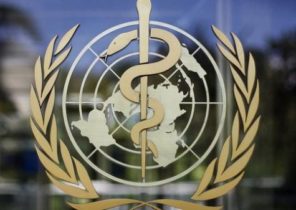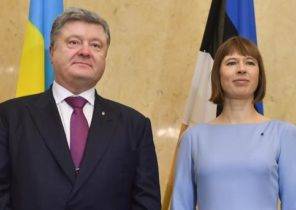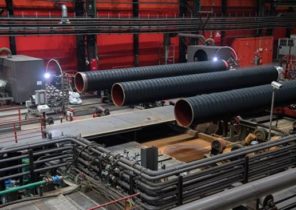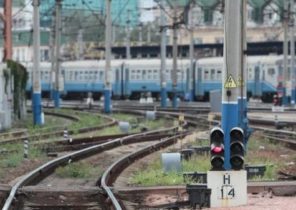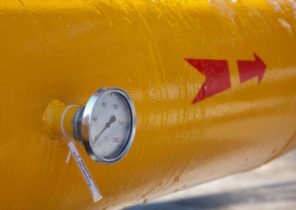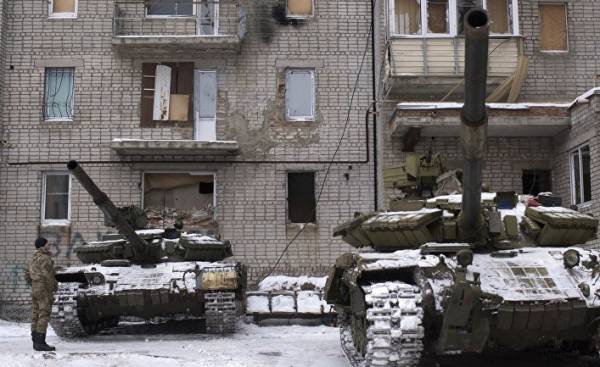
In Soviet times, it was a land of miners and Steelworkers, coal mines and a thriving industry. Then, after the collapse of the Soviet Empire, Donbass has become a symbol of decline and suffering. Today this area is an absurd war that has claimed the lives of ten thousand people on the borders of Europe. For three years the Pro-Russian separatists and the Ukrainian army are tearing apart the land in the East of Ukraine, despite signed in February of 2015, the Minsk agreement that was supposed to put an end to this conflict.
On the one hand the front line is the self-proclaimed Donetsk people’s Republic (DNR), which seceded from Ukraine in 2014. On-site, closed to journalists, separatists openly supported Putin, give the residents a passport, recognized only by Russia, and coined the ruble. On the other hand, sent from Kiev, Ukrainian soldiers equipped with military equipment and people from the United States.
Along that border skirmishes and clashes broke out with renewed vigor after the arrival of the White house Donald trump, as if the separatists wanted to check the commitment of the new American President. People who find themselves in the midst of a fratricidal war, brought to the last line.
Zhovanka: grandmother under mortar fire
When Elena heard the first mortar rounds in her garden, she thought it was her last hour. It happened on March 23 of this year. 77-year-old woman only managed to rush to the stairs leading to the basement. The force of the explosion threw her down the stairs. All night she spent in a tiny closet, listening to the sound of broken Windows and crumbling walls above her head. That night the inhabitants Zhovanki counted 150 consecutive volleys of heavy artillery in their small village, lost among the fields and bisected by the front line. “It was a real Apocalypse,” says Helen, pointing at his ruined house.
The last inhabitants of the village Zhovanka separated by the front line, mostly elderly people living without water, gas and electricity for the last ten months. All the houses war have left their mark.
Once in the hands of Pro-Russian separatists in the beginning of the civil war, part of the village was recaptured by the Ukrainian troops in 2015. And since she is under cross-fire from both sides. Administratively Zhovanka refers to Gorlovka, the city is located just four kilometers from the separatists. There are school, hospital and social services. Before it takes just ten minutes, and now, with all the queues at the checkpoint, it takes a few hours. People, 67 years old, asks with tears in her voice, “I Have a son and grandchildren who live here, and another son who lives there with his family. They need me at all. What to do?”
“We can’t live. Why is everything about us?” It has been ten months in the Zhovanka no water, no gas, no electricity. The old woman, already recognizing by ear the caliber of the mortar, as quick as you can, run across the street, his head bowed. Called the “road of death”, this street crossing the village, all the time in the line of fire of snipers. A few weeks ago it killed two roofers.
The daughter of a Russian aristocrat, exiled after the death of Stalin, Alexander Arkhipov, 74, year built on the veranda of the barricades from bags with sand. “I never thought that once again go through the war,” – says the woman.
Humanitarian aid doesn’t reach here. Only some Evangelical missionaries bring the bread, bottles of water and oil. “Without them we would have died”,- said Lyudmila, 57 years old, clutching a loaf of bread under his arm. In the distance is heard the crackle of Kalashnikovs. Going on the road, it seems even they can not hear.
Marinka: “Children live in fear”
In the beginning of the year he lost three fingers on a hand, working on his plot of land, he stepped on one of the many anti-personnel mines. As indicated on the poster on the side of the road — all the fields in the area littered with mines. “It’s not that bad, unless you’re a violinist,” jokes neighbour Volodya. The bullet-riddled gate, a failed roof, bricked up the window…Here, in Maryinka, a few kilometers from Donetsk, all the houses bear the imprint of war.
Away on the boulders entrenched Pro-Russian snipers, able to hit the target, located two kilometres from them. They occasionally shoot at windshields. Sometimes they raised the Russian flag. This provocation of clean water results in an immediate response. Sergei, a soldier for 35 years, said: “Sometimes they come drunk to the evening. Suddenly they shoot. We are responsible. And so on. In two years none of the parties won and meter of the earth.”
Frustrated residents don’t trust anyone first and foremost soldiers who should protect them. Vladimir sighs, “which side shot? In fact we know nothing”.
However, life goes on. Children play soccer to the sound of shots. In school sports, which for three years three times was bombed on every floor hang posters showing the asylum. “Children have learned to live with that fear,” says Sasha, Boxing coach, remembering 11-year-old girl who stopped talking after a night of bombing.
Irina Pavlovna, Director of the sports school in Marinka, and Natasha, is responsible for the maintenance, looking for a sponsor for pool renovation destroyed three years ago by a mortar. “Our goal is to support the activities for the children.”
“Everyone who could, left.” Natasha, the Manager of the sports school, left, as she says, for reasons of Pro-Ukrainian patriotism. The majority of her neighbors look forward to the arrival of Pro-Russian separatists. She interrupted them with all the communication. Oksana, 44, has not decided whose side she’s on. But she can no longer endure Ukrainian propaganda. “I’ve had enough of their aggressive symbolism, I can no longer see children obliged to wear yellow and blue bracelets, and hearing every corner of Patriotic songs,” says the mother of three children. “The meaning of this absurd war beyond our comprehension. We want to live in the world.” This winter from the cold dead 11 people.
Krasnogorovka: “People don’t like us”
“We lost the information war”,- said Ilya, a young Lieutenant, specnazovec of the Ukrainian police. “People here have only Russian TV. On the one hand, we see calculated on the external effect of the Russian transfer c beautiful pictures and happy families. On the other, Ukrainian fascists killing their own children. “At the state TV propaganda broadcasts continuously expose the villainy of the “Kiev fascist clique” and discuss the European crisis.” “So many people hope that Putin will come and save them all”. “The local population did not hesitate, and cooperates with the separatists. Many have families and friends, “the other side”. We need to prevent sabotage and infiltration into our territory.
In a dilapidated hall of Krasnogorovka sitting Roman Chorzow, 40 years. He is a vicious and bitter form. In the city there are only five thousand inhabitants, three times less than before the war. This former consultant joined the Ukrainian army after the annexation of Crimea and heads of civil-military control that is installed along the front lines. He is looking forward to the referendum provided for by the Minsk agreement, but which it is impossible to organize in this deadly area. On the shelves next to the icons a small collection of shell casings and bullets from the mortars collected in the street 82, 120, 122 mm… “Is all manufactured at Russian plants. These so-called separatists —true professionals. Those losers that they were at the beginning, not gone. They have an incredible amount of tanks coming toward him with three Russian factories,” says Roman.
Nina Nikolaevna, Director of Krasnogorovka school No. 3, faces riddled with mortar wall. Same story with anti-personnel mines PPM-2,banned in Europe, and with the drones that regularly fly over the city. “Putin holds us for idiots. Without it all would have ended in less than two months. No fools”.
“Putin should crush the virus of independence”
Whatever is said in Moscow, in six months it killed 12 people, mostly civilians. A native of Dnepropetrovsk (300 kilometres from the Donbas) Roman Chorzow understands that for the most part Russian-speaking local population does not support it: “People don’t love us. Worse, they consider us a threat or even cooperate with the enemy.”
In November, Kiev has sent special forces from 50 experts on terrorism, to identify pockets of support for the separatists of the DPR. Skirmishes occur on a regular basis. A week before the city fell three mortar shells. One ended up in the school. For the tenth time.
Bakhmut: shattered Church
Two weeks ago, father Paul was called by the unknown: “If you return, you’re finished. If they don’t, the rest of your family.” All his relatives live in Donetsk among the separatists. He can’t carry them in Bakhmut. Forty-year-old priest belongs to the Kiev Patriarchate, which distanced itself from Moscow in 1993, after the proclamation of Ukraine’s independence. For the Pro-Russian separatists, he is a traitor.
In 2014, he was detained while serving in the Donetsk Church. The next three months he spent in a constantly lit cell. In the dungeon for “VIPs”. “I was alone,” he says. From the basement, he heard the cries of trapped under the torture of people lost missing civilians. He recalls the tragic committed by mistake, the murder of the mother of the family: “the Boss told a subordinate to kill her if she did not start talking, and went out to smoke. When he returned, the woman was already dead. He just wanted to intimidate her, but the boy took the instruction literally.”
Who conducted the interrogation of father Paul, the priest demanded death penalty for him. “He said he has anything against me personally, but that I was an enemy of the state”.
Fortunately, father Paul knew one of the guards who helped him escape. Since then, those without money, parishioners and the Church priest tormented by fear for loved ones. He doesn’t know what to do… Politicized the Orthodox Church often openly stands on the side of the separatists and plays a key role in the conflict.
“In Lugansk people’s Republic, one of the churches served as a weapons depot, another collected the money, and the third is to recruit people,” says father Paul. He is the priest located in Bakhmut battalion never hid Pro-Ukrainian views.
Maori: nightmare at the checkpoint
At the checkpoint “Maori”, the main connecting point between Ukraine and the Donetsk people’s Republic, cars lined up in the morning. Pedestrians have even harder: now, to make a journey of 10 kilometers, they are forced to use three minibuses. “It’s just a nightmare, he emerged at dawn from Gorlovka 54-year-old Irina. — You have to spend 5-6 hours on the road, which used to take less than half an hour. They cut in half a living organism”. She doesn’t want to quit the NPT, which remained the home of her mother (she fears that it may be confiscated), and Bakhmut, where it can receive a higher pension than on the territory of the separatists. She did not ask the passport and the DNI: “After this I will no longer be allowed to Ukraine”.
Like most residents of Donbass Irina enjoys both. Most of the local retirees trying to get pension from both sides of the border with bogus addresses, which sell under the counter. Every day border is crossed 5 thousand cars, and in the days of pensions, their number doubled. The DNR give only rubles, the cost of which is fixed and artificially inflated. The resulting meat and vegetables there are twice as expensive. All this plays into the hands of smugglers, who returned with a trunk full of products.
“What is happening in Ukraine — planned operation”
Whatever the DNI have its supporters. Oksana, for example, without hesitation chose Donetsk. Her husband lives in Ukraine, where more work. “We all businesses are closed,” she laments. Anyway, despite the attacks, high prices and unemployment, the mother of the family that on the weekends goes across the border to her husband, has no regrets. She touts “patriotism in Donetsk schools, free meals for kids, cleanliness in the city.” Agree with her and mother-in-law Ludmila: “We’re back in the days of the Soviet Union. Water, gas, telephone — all subsidized. Even on the TV show the good old movies, not the horror of the West”.
From the barracks to the front
Eugene, blue-eyed young man with a childish smile, spent three months on the barricades on the Maidan during the revolution of 2014 in Kiev, and then volunteered for the Ukrainian army. Terrible beginning of the war slammed into his memory: “there was no money, no equipment. Full of poverty”.
In that period, Ukrainian forces have experienced throughout the deficit. Many of the volunteers had their own to buy equipment. Eugene froze his feet and went to the hospital.
Today, this serves as a soldier on a three-year contract and gets 7 thousand UAH (250 Euro) per month, which is not so bad for the region, where salaries rarely exceed 150 euros. In addition, he is now equipped from head to toe. He was left by his wife and his son now had another father, but Eugene says that he is ready to die for Ukraine and has no regrets. He only returned to the barracks, but in the mind already returning to the front.
An hour away is no man’s land, which we reached after long negotiations with the headquarters and several kilometers through the mud without a single living soul around. All classified. Suddenly we stumble on an incredible line of trenches in the style of 1914. There’s not a single month posted three dozen soldiers who are without equipment, completely Autonomous. Their task is to track enemy positions. In this day of relative calm in connection with the religious celebration of the absurdity of war is particularly acute conspicuous.
Reminiscent of the huge Rambo Lieutenant Vladimir, the commander of strategic development, responding to this remark: “Any war is absurd. If we pull back, then settle them. If they go away, then we’ll move on”.
On the hillside there is a mannequin in camouflage in a sniper pose: it needs to trick the enemy. Skirmishes occur here every day. Being here is already not the first week Paul is a native of Donetsk. He knows that he came out to his school mates. During a short leave he even talks to them on the phone: “We ask what happened new as a family like nothing happened. All this we try not to talk. What’s the point?”

